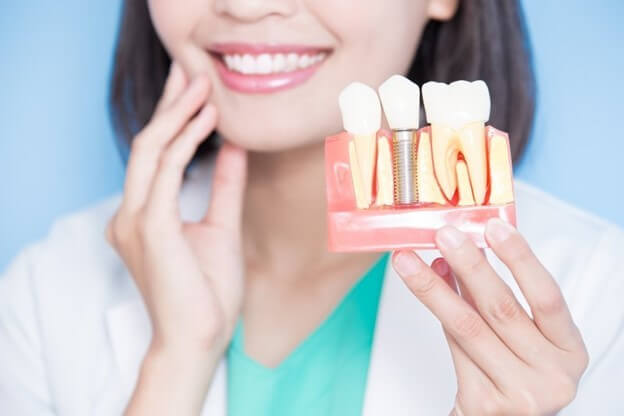Are Dental Implants Stronger Than Your Teeth?
Dental implants are artificial tooth roots that provide a long-term solution for replacing missing teeth. They can replace missing teeth and provide strong bite force that can last for years with proper care. While tooth enamel is the strongest material in the human body, it can still become damaged, and dental implants can be even stronger. Keep reading to discover why they are so strong.
Are Dental Implants Stronger Than Your Natural Teeth?
Determining whether dental implants are stronger than natural teeth is a complex matter. Although dental implants can last over 30 years without cracking or breaking and are impervious to decay, they cannot be directly compared to natural teeth.
Although dental implants are highly resilient, they can still crack similarly to natural teeth. The probability of this happening varies based on the particular component of the implant, thus a comprehensive understanding of their operation is required to provide a detailed answer.
What Parts of Dental Implants Are Strongest?
The contemporary dental implants comprise of three components, namely the post, abutment, and crown. The titanium-made post is the sturdiest part as it integrates with the jawbone via osseointegration, endowing it with exceptional strength and stability. The titanium abutment is the second strongest element and is also highly resilient to damage.
Although the crown of a dental implant, usually composed of porcelain, emulates the strength of a natural tooth, it is vulnerable to damage from excessive pressure or chronic teeth grinding.
How to Keep Your Dental Implant
To ensure the longevity of your dental implants, it’s crucial to take care of them, even if they are stronger than your natural teeth. This can be achieved by:
- Practicing good oral hygiene – This involves brushing your teeth two times a day as well as flossing every night.
- Avoid chewing on hard objects – The crown or other implant restoration can sustain damage if subjected to hard foods or objects, such as chewing on ice or hard candy.
- Use a mouthguard – You can prevent damage to your implants and adjacent teeth by avoiding teeth grinding or jaw clenching (bruxism).
- Visit your dentist regularly – Regular biannual checkups and cleanings are essential to maintain the implant.
- Avoid smoking – Your chances of implant failure can be reduced by refraining from smoking or using other tobacco products.
- Keep your dentist updated – To avoid further damage, inform your dental professional promptly about any changes or problems with your implant.

